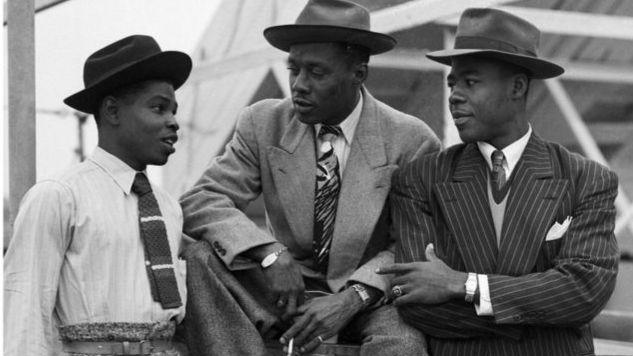Windrush: Reflections on racism and George Floyd
- Published
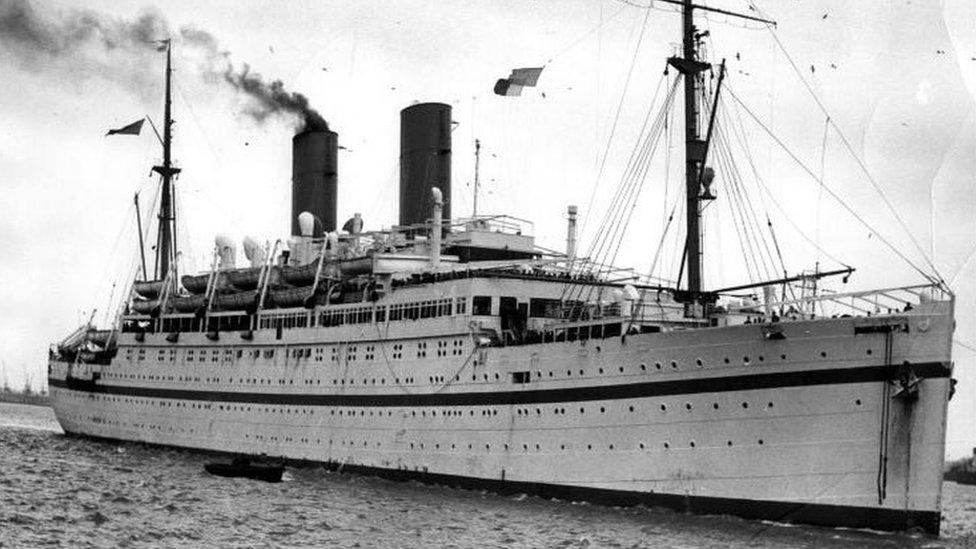
Hundreds of passengers from the Caribbean disembarked HMT Empire Windrush on 22 June 1948
People who arrived from the Caribbean to start a new life in Britain 72 years ago have been celebrated at a virtual event to mark National Windrush Day.
Race Council Cymru hosted the occasion to mark the second annual Windrush Day.
HMT Empire Windrush arrived in Essex on 21 June 1948 and its almost 500 passengers disembarked the next day.
In March, a review found "profound institutional failure" led to some being deported, detained or losing their right to work or NHS treatment.
Wales' First Minister Mark Drakeford, who attended the online event, thanked them for the "huge contribution they had made to both our country and our culture".
In the aftermath of World War Two, the UK saw huge investment and bombed cities were rebuilt, transport systems expanded and new institutions, such as the NHS, had to be staffed, so people from all over the Commonwealth came to help fill the labour shortage.
Monday's event provided an opportunity for members of the Windrush generation and their relatives to share their thoughts on the rise of the Black Lives Matter movement and their experiences of racism.
In recent weeks, protests have taken place around the world after George Floyd, an unarmed black man, died in police custody in Minneapolis in the United States.
There have been several protests in Wales and more than 30,000 people have signed a petition to make it compulsory for slavery, colonialism and the impacts on black, Asian and minority ethnic (BAME) communities to be taught to Welsh schoolchildren.
But what do the Windrush generation make of the changes in society over the past 72 years?
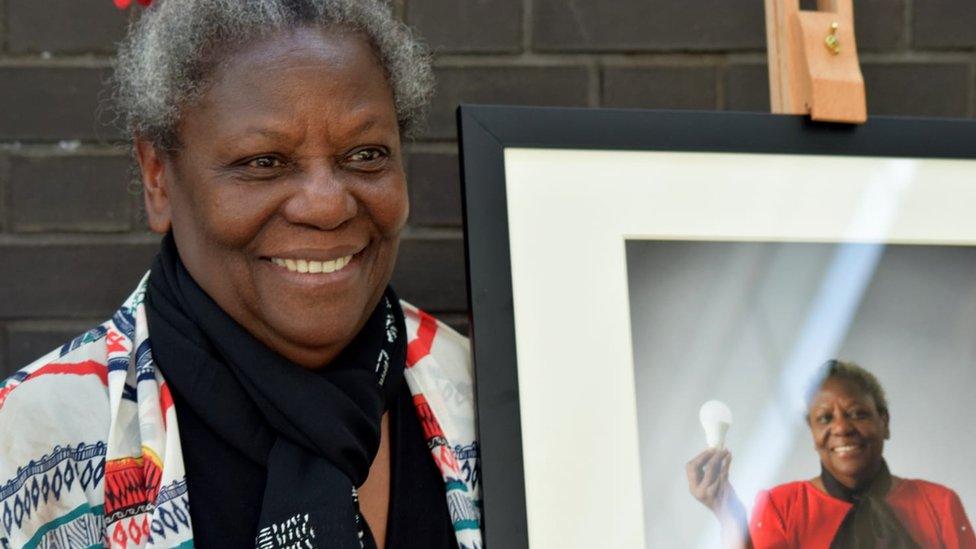
Roma Taylor
It was October 1958 when 15-year-old Roma Taylor travelled to Wales from Antigua to be reunited with her with her mother and brother.
She went on to found Windrush Cymru Elders in 2017, a group which brings together older people from diverse communities across Wales.
Mrs Taylor, 76, said: "The only time I had a problem with racism was when I was in the Army - I was about 50 then.
"I went swimming with some friends and a little girl looked at me and said 'you're black'.
"She probably didn't see many black people though so that didn't hurt me."
Mrs Taylor lived in the Cardiff docklands community of Tiger Bay when she came to the city.
"My Tiger Bay", she described it.
"You did not get racism in Tiger Bay, not that I know of because I didn't get any. It was fabulous!"
But as the years went on, racism became more of a feature in her life: "One of my little girls, when she was five, said that the teacher told her 'you must go back and sit in the corner you little monkey'."
She said police were stopping black boys more than ever and she was disgusted by the death of George Floyd.
"I cried for the whole week. I've been crying for a week because that really hurts," she said.
"People are angry because when the Windrush came over to rebuild Britain, they came over and they worked hard and did the dirtiest work.
"They kept themselves to themselves and never got into problems.
"But after seeing what they did to George Floyd, this generation is angry. You can see it in their faces... we haven't progressed at all."
She said the younger generation would not "stand for any nonsense".
"They're not like us - we zipped our mouths and took everything that they threw at us."
But Mrs Taylor is hopeful of change: "Every child should be taught [black history]. It's deep, but fabulous and wonderful".
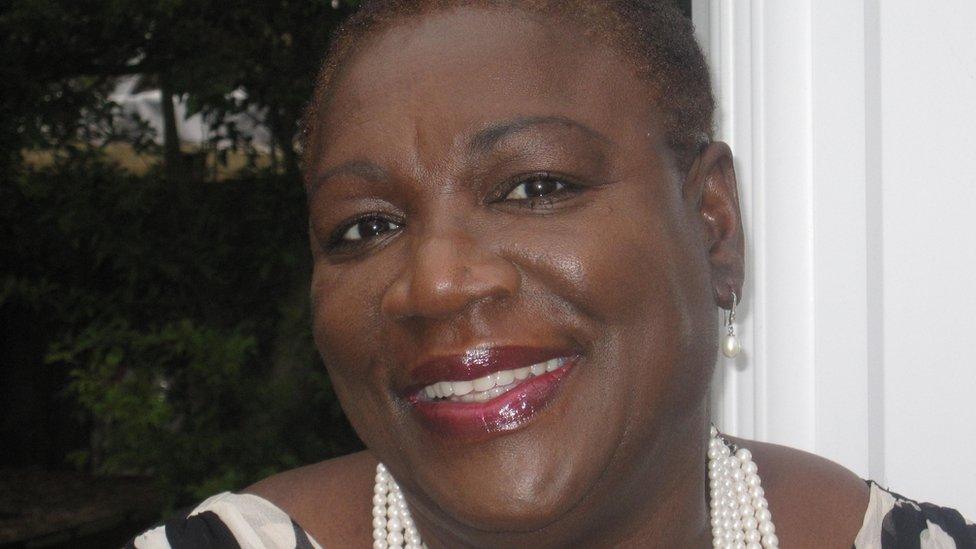
Hadassah Radway
An 11-year-old Hadassah Radway came from Jamaica to Newport with her siblings in 1967.
The former teacher, now 63, said she was one of only five black families in her school.
She said the the colour of her skin meant she was not seen as clever and had to work hard to prove herself.
"When I was growing up they used to throw banana skins," she said.
She said during her 30 years teaching she experienced sniggering and often felt humiliated.
"One student said to me 'Africa is back that way. What are you doing here?'"
She said the experience left an "indelible mark" and all she wanted was for the child to be taught about race equality.
"Black history and our contribution has been whitewashed from our curriculum and it is time for it to come back," she said.
Ms Radway was concerned about protests happening during the Covid-19 pandemic, especially as statistics show more people from BAME groups are dying from the virus than those from white ethnic groups.
She said the fact the younger generation was still fighting for change "says a lot about how far we still need to go".
She added: "When my father came here and others like him in the 60s, they had to fight. They were fighting for their lives in places like Pillgwenlly [in Newport] where they were being attacked because of the colour of their skin."
She said it was time for policies that bring about "real change" for her community.
- Published22 June 2020
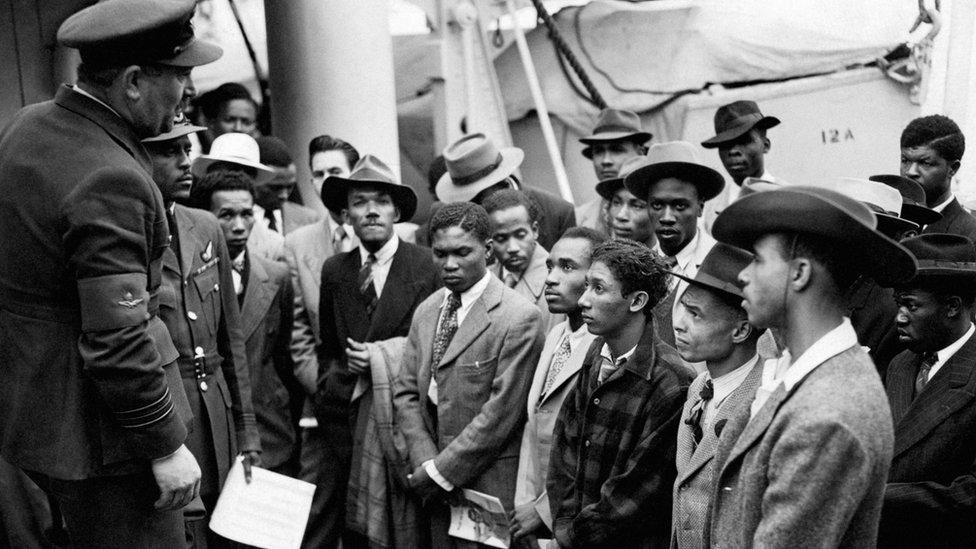
- Published19 March 2020
